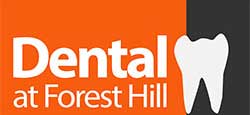Prioritize your child's well-being! Excessive sugar intake is a major culprit behind dental issues in the younger generation.
Connection Between Sugar and Oral Health
In a world inundated with sugary temptations, the impact on children’s oral health cannot be overstated. Beyond the joy that sweet treats bring, there lies a potential risk that can lead to long-term dental issues.
Children’s oral health is a topic of paramount importance, and one of the key contributors to dental problems in the younger generation is the excessive consumption of sugar. As parents and caregivers, understanding the intricate relationship between sugar and oral health is crucial for ensuring the well-being of our children.
The Impact of Sugar on Teeth
The journey of a sugary treat doesn’t end with its delightful taste; it continues into the mouth, where sugar becomes a catalyst for tooth decay. The process involves the interaction of sugar with bacteria in the mouth, leading to the formation of acid that erodes tooth enamel. Understanding this process is crucial for implementing preventive measures.
Common Sources of Hidden Sugars
While candies and sodas are obvious culprits, hidden sugars lurk in many seemingly innocent foods. Unmasking these hidden sugars is essential for making informed dietary choices for children. Items like fruit juices, flavoured yogurts, and even certain cereals can contribute significantly to daily sugar intake.
Recommended Daily Sugar Intake for Children
Knowing the recommended daily sugar limits for different age groups is the first step in managing sugar intake. Reading nutrition labels becomes a valuable skill for parents aiming to provide a balanced diet for their children. Awareness empowers better decision-making in the grocery aisles.
Effects of Sugar on Overall Health
The consequences of excessive sugar consumption extend beyond dental problems. Childhood obesity, diabetes, and other health issues are intertwined with a diet high in sugar. By addressing sugar intake, we not only promote oral health but also contribute to the overall well-being of our children.
Creating Healthy Eating Habits
Balancing the diet is key to a child’s overall health. Incorporating a variety of nutrient-rich foods and minimizing sugary snacks create a foundation for healthy eating habits. Small changes in daily routines can lead to significant improvements in long-term health outcomes.
The Role of Parents and Caregivers
Parents and caregivers play a pivotal role in shaping a child’s attitude toward food. By fostering a positive food environment and modelling healthy eating habits, adults can influence children to make better choices. It’s not just about restricting sweets but about instilling a sense of balance and moderation.
Regular Dental Check-ups
Prevention is better than cure, and this holds true for oral health. Regular dental check-ups are instrumental in detecting issues early on and preventing the escalation of dental problems. Early intervention ensures a healthier smile for the future.
Educational Initiatives at Schools
Educating children about oral health shouldn’t be confined to home. Integrating oral health education into school curriculums helps create a holistic approach to preventive care. Schools can become allies in promoting good oral hygiene habits from a young age.
Fluoride and Its Importance
Fluoride is a powerful ally in the battle against tooth decay. Understanding the sources of fluoride and ensuring its adequate intake is crucial for strengthening teeth and preventing cavities. From toothpaste to drinking water, fluoride plays a vital role in maintaining oral health.
Addressing Specific Concerns: Baby Teeth vs. Permanent Teeth
Different stages of dental development require distinct care approaches. While baby teeth eventually make way for permanent teeth, their health is fundamental to the overall oral development of a child. Recognizing the specific needs of each stage ensures comprehensive care.
Sugar-Free Alternatives for Children
A low-sugar lifestyle doesn’t mean depriving children of tasty treats. Exploring sugar-free alternatives opens up a world of healthier options for snacks and beverages. From fresh fruits to creative recipes, there are numerous ways to satisfy a sweet tooth without compromising health.
Overcoming Challenges: Peer Influence and Advertising
Children are highly influenced by their peers and advertising. Navigating the challenges posed by societal pressures on food choices and the pervasive influence of advertisements requires a combination of education and open communication. Empowering children to make informed decisions is key.
Success Stories and Testimonials
Real-life stories of families successfully reducing sugar intake provide inspiration and motivation. Hearing about positive outcomes, both in terms of improved oral health and overall well-being, encourages others to embark on a similar journey.
Making Informed Food Choices
The relationship between sugar and oral health in children is a complex one that requires attention and proactive measures. By understanding the impact of sugar, making informed food choices, and fostering a positive food environment, we pave the way for a future with healthier, happier smiles.
Frequently Asked Questions - FAQ
A: Understanding age-appropriate sugar limits is crucial. For children aged 2 to 18, the American Heart Association recommends a maximum of 25 grams (6 teaspoons) of added sugar per day.
A: While natural sugars in fruits can contribute to tooth decay, the fiber content and overall nutritional value of fruits make them a healthier choice compared to processed sugars.
A: Yes, untreated cavities in baby teeth can affect the health of permanent teeth. It’s essential to address dental issues early to ensure proper oral development.
A: Snack options like fresh fruits, vegetables with dip, yogurt with no added sugars, and whole-grain crackers are excellent alternatives to sugary snacks.
A: Regular dental check-ups are recommended every six months. However, individual needs may vary, so consulting with a dentist is advisable.


